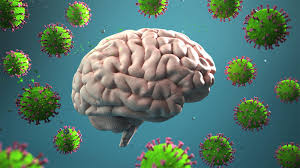
COVID-19 Impact on Health | Physical & Mental Health Effects
The COVID 19 (Coronavirus disease) pandemic has not only reshaped our daily lives but has also significantly impacted access to vital medicines for noncommunicable diseases (NCDs). Delve into the challenges highlighted by the World Health Organization, exploring disruptions in the supply chain and reduced healthcare access. Learn why urgent action is essential to address the complexities of covid securing affordable medicines and maintaining healthcare support during these unprecedented times.

The COVID pandemic has had a significant impact on access to medicines for noncommunicable diseases (NCDs). According to a recent report by the World Health Organization (WHO), disruptions in the supply chain, increased demand for essential medicines, and reduced access to healthcare services have all contributed to this issue. As a result, many people living with NCDs are struggling to access the medications they need to manage their conditions.
The Impact of COVID on the Supply Chain
One of the main reasons for the disruption in access to medicines for NCDs is the impact of the COVID virus on the global supply chain. Many countries have experienced shortages of essential medicines due to disruptions in the production and distribution of these drugs. This has been exacerbated by the increased demand for certain medications, such as those used to treat hypertension and diabetes, which are common comorbidities of the disease.
Reduced Access to Healthcare Services
In addition to disruptions in the supply chain, reduced access to healthcare services has also contributed to the issue of limited access to medicines for NCDs. Many people have been unable to access routine healthcare services due to lockdowns and other restrictions put in place to control the spread of COVID. This has made it difficult for people living with NCDs to receive regular check-ups and prescriptions for their medications.
Addressing the Issue of Limited Access to Medicines for NCDs
To address the issue of limited access to medicines for NCDs, the WHO has called for urgent action from governments, healthcare providers, and other stakeholders. This includes ensuring that essential medicines are available and affordable, strengthening supply chains, and improving access to healthcare services. It is also important to prioritize the needs of people living with NCDs in the COVID response, to ensure that they are not left behind.
In conclusion, the COVID 19 pandemic has had a significant impact on access to medicines for noncommunicable diseases. Disruptions in the supply chain, increased demand for essential medicines, and reduced access to healthcare services have all contributed to this issue. To address this problem, urgent action is needed from governments, healthcare providers, and other stakeholders to ensure that essential medicines are available and affordable, supply chains are strengthened, and access to healthcare services is improved. By working together, we can ensure that people living with NCDs receive the care and support they need during these challenging times.
Disclaimer: The information provided in this content is for general informational purposes only. It is not intended as medical or healthcare advice, diagnosis, or treatment. Always seek the advice of a qualified healthcare professional with any questions you may have regarding a medical condition or healthcare decisions.

